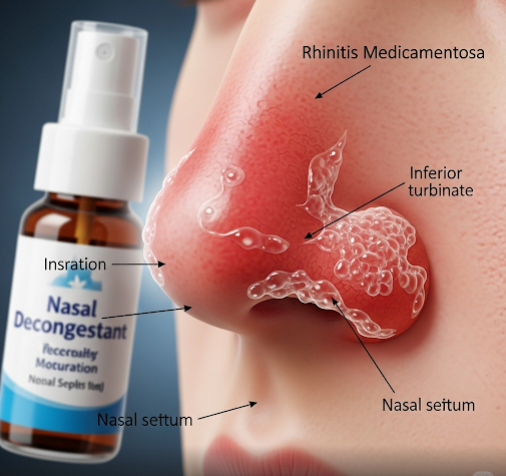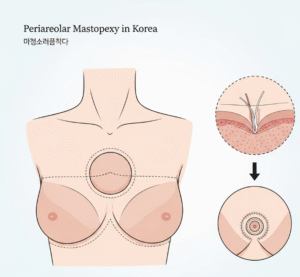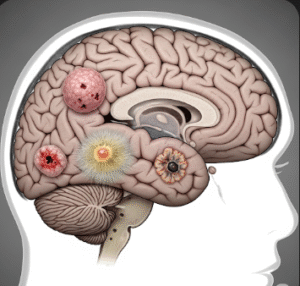Overview
Rhinitis Medicamentosa, also known as rebound nasal congestion, is a condition characterized by chronic nasal congestion caused by the overuse of topical nasal decongestant sprays. It leads to persistent nasal swelling and blockage, often worsening symptoms rather than relieving them. In Korea, ENT specialists utilize effective diagnostic and treatment strategies to manage this condition and restore normal nasal function.
What is Rhinitis Medicamentosa?
Rhinitis Medicamentosa occurs when prolonged use (usually more than 3-5 days) of nasal decongestant sprays like oxymetazoline or phenylephrine causes the nasal blood vessels to become dependent on the medication. Once the medication wears off, severe rebound swelling occurs, leading to chronic nasal congestion.
Symptoms
- Persistent nasal congestion despite using decongestant sprays
- Nasal stuffiness that worsens when not using the spray
- Difficulty breathing through the nose
- Dryness or irritation inside the nasal passages
- Headache or facial pressure in some cases
Causes
- Overuse of topical nasal decongestants for longer than recommended
- Prolonged vasoconstriction followed by rebound vasodilation in nasal mucosa
Risk Factors
- Frequent use of nasal sprays for more than 3 to 5 consecutive days
- Self-medication without medical guidance
- Chronic allergic rhinitis or sinusitis leading to repeated decongestant use
Complications
- Chronic nasal obstruction
- Nasal mucosal damage or atrophy
- Dependence on nasal sprays leading to long-term symptoms
- Potential sinus infections due to poor nasal drainage
Prevention
- Limit nasal decongestant spray use to no more than 3-5 days
- Use alternative treatments for nasal congestion such as saline sprays or antihistamines
- Seek medical advice for persistent nasal symptoms
Treatment Options in Korea
Korean ENT clinics provide effective management of Rhinitis Medicamentosa through:
- Cessation of Nasal Decongestants: Gradual withdrawal or immediate discontinuation under medical supervision.
- Medical Therapy: Use of intranasal corticosteroids, saline nasal sprays, and antihistamines to reduce inflammation and congestion.
- Nasal Care: Humidification and nasal irrigation to soothe and restore nasal mucosa.
- Surgical Options: In rare refractory cases, procedures such as turbinate reduction may be considered.
- Patient Education: Counseling on proper nasal spray use and alternatives for managing nasal congestion.













